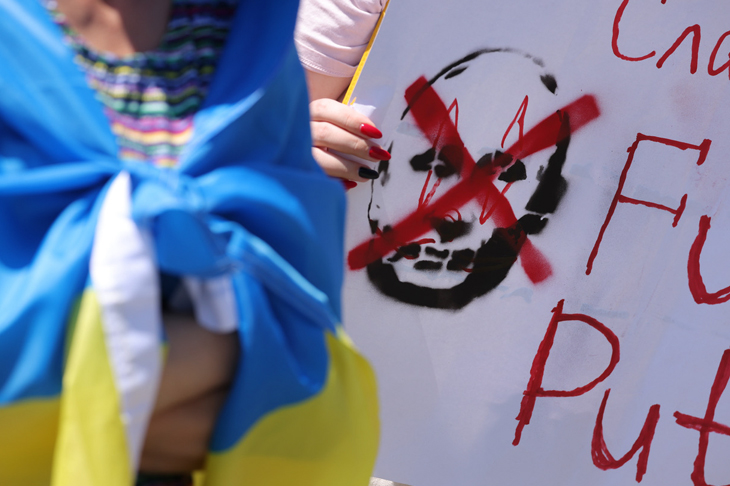The dominant geopolitical story last year was Ukraine. For several decades after the second world war, the belief in the transformative potential of the new order in diminishing the role of force in shaping great power relations – and world affairs more generally – seemed to have been validated. The last great power war was in Korea in the 1950s. There had been a long-term shift from the power end of the spectrum towards the normative end as the pivot on which history turns, with a steady reduction in societal, national and international violence based on the ‘better angels’ of human nature as argued by Harvard scholar Steven Pinker. This was accompanied by a geographical shift from Europe to the Indo-Pacific as the new cockpit of world affairs.
Bucking these twin trends, Russia’s invasion of Ukraine marked the return of Europe to the centre of world affairs, and the return to Europe of geopolitics, territorial disputes, and large-scale force and ground wars not experienced since 1945. Russia and NATO hold different understandings of the terms on which the Cold War ended with regard to the future status of eastern European countries that had been members of the Warsaw Pact. To put it provocatively, the problem with NATO’s enlargement was not that it expanded eastwards, but that it did not expand far enough east. It stopped at Russia’s borders, instead of bringing Russia inside the tent of a fundamentally transformed European security, economic and political architecture. The end result is that the rupture of the Cold War security order caused by the collapse of Soviet power is a long way from being stabilised.
Moscow badly miscalculated its initial ability to shock and intimidate Kyiv into submission with a surprise blitzkrieg, did achieve significant military successes in eastern and southern Ukraine in the early period, but then suffered substantial reverses as Ukraine regrouped with more lethal and substantial Western military assistance and training. The recent capture of Soledar is Russia’s first significant success in months. It’s hard to say with any confidence if one side is clearly winning or if the war has entered an attrition phase.
If Russia fails to get its preferred outcome of a neutral Ukraine, it might instead aim for a dysfunctional rump state with a wrecked economy and infrastructure. Putin’s aim might also be to break Europe’s political resolve and fracture the North Atlantic community’s cohesion and unity with ‘rising prices, energy shortages, lost jobs and the social impact of trying to absorb’ up to 10 million Ukrainian refugees, as Gideon Rachman put it in the Financial Times. Even so, the asymmetrical equation remains. As the undoubted aggressor with pretensions to great power status, Russia will lose by not winning, while Ukraine, as the weaker object of aggression, will win by not losing.
There’s unlikely to be any settlement before a mutually hurtful stalemate is reached – the point where each side believes that the cost of continuing with the conflict will exceed the pain of a negotiated compromise that meets bottom lines without satisfying all war aims. Russia has imposed heavier costs on Europe by weaponising its dominance of energy supplies than it has suffered from sanctions. After the experience of Western sanctions in 2014, when Crimea was annexed, Russia had already built its own parallel payments systems to work around the West’s global dominance.
Nationalism has been inflamed on both sides, fuelled in Ukraine by naked Russian aggression and in Russia by the conviction that the West’s real goal is not to protect Ukraine but to destroy Russia as a functioning country. With outright defeat of either Russia or Ukraine still a long way off, a slow and gradual escalation is the likely short- and medium-term trajectory. The US has managed to bleed Russia heavily by arming Ukraine without putting its troops into battle on land, sea or air. But the scale and speed of Ukraine’s military successes in turn means that Kyiv is less amenable to US pressure to compromise on its absolutist war aims of pushing Russia out of every corner of Ukraine’s pre-2014 borders.
The war has highlighted flaws and shortcomings in Russian arms, technological sophistication, doctrine, training, logistics and integration of land, air and sea capabilities; that is, in its combat worthiness on the battlefield. But NATO military stocks have also been seriously depleted and the weaponisation of trade, finance and energy has, on balance thus far, proven costlier to Western peoples than to Russians. The risk is if the West pursues outright defeat and humiliation of Russia, Putin might yet resort to the use of nuclear weapons that will end in catastrophe for everyone. This is why ‘Realists’ like John Mearsheimer still fear that the various conflict parties are trapped in a game of nuclear Russian roulette. All sides have been extremely careful thus far to avoid any direct Russia–NATO clash. But will NATO be seduced by the temptation of regime change in Moscow, or by Ukraine’s call for this, into rejecting opportunities for an end to the conflict before costs begin to exceed gains? Even short of that, it’s hard to see Russia giving up Crimea: it’s too important from a purely strategic point of view.
For the present, though, both the timing of when to commence serious negotiations, as well as the terms of a settlement that is minimally acceptable to all the main conflict parties, will depend on the course of the war. Typically, negotiated ceasefires and peace agreements are preceded by intensified fighting as all sides seek to create ‘facts on the ground’ to strengthen their bargaining positions when talks begin around the conference table. War has traditionally performed certain functions in international relations as the arbiter of the creation, survival and elimination of actors in the system, especially the major powers; of the ebb and flow of political frontiers; and of the rise and decline of empires and regimes. If Russia should ultimately prevail in its key war aims in Ukraine and reassert its great power status, NATO and Ukraine will be the big losers. If Russia is defeated and permanently weakened, Ukraine and eastern and northern Europeans will rejoice, Ukraine will recover and prosper with substantial Western assistance and NATO will emerge as unchallengeable in the North Atlantic.
Got something to add? Join the discussion and comment below.
Get 10 issues for just $10
Subscribe to The Spectator Australia today for the next 10 magazine issues, plus full online access, for just $10.
You might disagree with half of it, but you’ll enjoy reading all of it. Try your first month for free, then just $2 a week for the remainder of your first year.













Comments
Don't miss out
Join the conversation with other Spectator Australia readers. Subscribe to leave a comment.
SUBSCRIBEAlready a subscriber? Log in